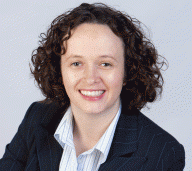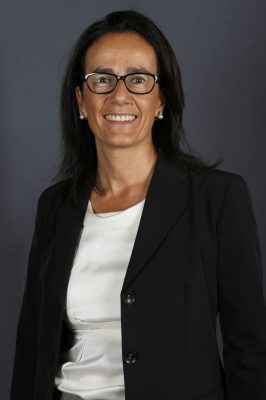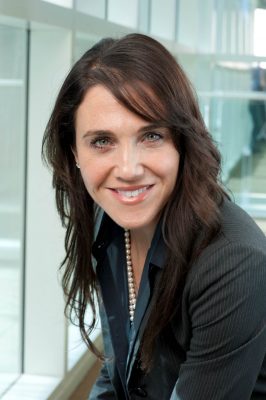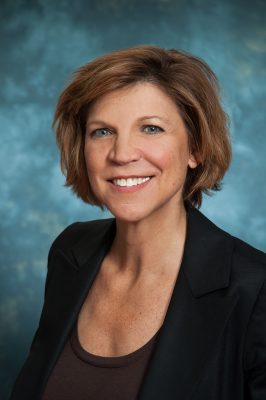By Nicki Gilmour, CEO and Founder of theglasshammer
 To review 2016 in context of women at work and the progress being made for professional women has been like a textbook case study for me as an organizational psychologist who works in diversity. I hope I can share with you how we can go forward and change the way we do this work. It is obvious that there is work to do and yet I am so incredibly anxious of the capacity of most people to ensure this moment is a launching pad for real progress and not the moment that we spiral down and turn the clock back thirty to hundred years. It truly could go either way. Progress is everyone’s responsibility to take and accountability has to be there- change starts here.
To review 2016 in context of women at work and the progress being made for professional women has been like a textbook case study for me as an organizational psychologist who works in diversity. I hope I can share with you how we can go forward and change the way we do this work. It is obvious that there is work to do and yet I am so incredibly anxious of the capacity of most people to ensure this moment is a launching pad for real progress and not the moment that we spiral down and turn the clock back thirty to hundred years. It truly could go either way. Progress is everyone’s responsibility to take and accountability has to be there- change starts here.
Recap the past ten years (see here for 2015, 2014, 2013, 2012, 2011, 2010 Year End reviews for a macro, multi-year view) to see how things aren’t changing over a fair time period. In one sentence, progress for women’s equality at work, based on promotional and pay parity for same work done and all things being equal, is just not there. This year, hasn’t seen much progress either and the fact is at board level there are no more women in board seats than there were ten years ago, unless mandated by quotas seen with an increase in countries that have a mandate in place (i.e. not USA). Senior management figure changes aren’t all that either and most women (and men) will tell you that they are working harder than ever.
A striking research piece of evidence is seen here in the 2016 PWC’s Annual Corporate Directors Report which includes responses from 884 public company directors, 83% of whom are male and 17% of whom are female. Overall, the findings state that 97% of respondents who think female board representation should be between zero and twenty percent were male board members. Worth noting, 3% of those who think that are female board members themselves. Then, the survey shows about a quarter of respondents said they believe there are a significant number of qualified diverse candidates out there with 93% of female directors saying that they at least “somewhat” believe that there plenty of qualified non-male, non-white candidates out there. “Somewhat” is not exactly resoundingly confident is it? And that implies that everyone thinks that there is an abundance of male candidates that are entirely ready for a board because somebody sits in these seats. I hate to tell you folks but we are all still holding up this blind spot of perceiving men to be more ready for leadership by virtue of being a man only. The emotions and desires driving “facts” are that maybe people want men in leadership roles because I have mentioned many times, women can be as equally sexist as men and sometimes even more so for many reasons including securing their own place in the pack.
How do we really create a meritocracy?
Do people want meritocracy? I do not believe all people do want meritocracy as the results of the US election show with 61% of white women who voted in the US election deciding that they do not want equal pay for the same work done as the man beside them and other actual policies that impact them directly. Then, these same women are turning a blind eye to sexism, sexual assault, racism and homophobia in some effort to believe that they do not rate basic protections of themselves and others as highly as other things. Except, what are these other things? Because upon examination there are no other things. It is not economic stability that is being sought and it doesn’t take a psychologist to tell you, it is the status quo of the white patriarchy that is being maintained by the very group best placed to disrupt it.
Do you think these women will ensure you do not have barriers at work if they believe that they deserve them for themselves in life? You tell me? Why does this happen? Why do “good people” do things that have a serious negative impact on other humans directly and knowingly? Look for your own cognitive dissonance and address the nuances in your behaviors that make you feel better but actually make you favor men over women as leaders and experts. What is cognitive dissonance? It is when you have a value or a belief and then you do something that doesn’t line up with that belief or you hold conflicting beliefs and feel that you need to align them. For example, you are against drink driving as a value but drive home from your holiday party drunk. You didn’t like this action or thought so then, you try to reduce the dissonance by devaluing the item, action or person and in this case like saying, “It was only a straight road for one mile and I only had two drinks, I was fine”. In reality, your belief is cancelled out by your actions that you then justify. We all do this but if you truly want to be an inclusive, fair champion of a level playing field for yourself, women, LGBT and people of color at work then turn the mirror towards yourself for a second because you can stop this process and you can live your diversity and inclusion values just as you don’t have to drive drunk.
Much like the research that I mention frequently called “Think Manager, Think Male” where men and women constantly rank male managers (as a group, not known individuals) as more competent, productive, stable, is your brain playing tricks on you. It is what you have been socio-conditioned to believe in part so of course this work of undoing all your paradigms and “what you Granny told you”, is not going to be easy.
For those who do want meritocratic conditions what will 2017 hold?
I think there are several things we can do as people reading this to move the needle for gender parity and general fairness to everyone. Also, from a career perspective you can choose your path, do not forget that!
Firstly, work for good companies who work hard at systems and culture to ensure an inclusive, progressive culture. Signs to look for when picking a company to work for are women at the top, middle and everywhere else. Good policies around families with men taking advantage of these policies and not just women as this will mean it’s not a one- gender policy in practice. Healthy, happy people and fair and clear talent systems are a must. It is not a coincidence if there are literally no LGBT or people of color working there. It is not a coincidence if women are not in the middle or top of the house. Look for great leaders who do what they say they will do and have a value set that shows that they value you and all that you can bring to work, such as Lloyd Blankfein at Goldman Sachs when he made his marriage equality video. PWC’s Bob Moritz and Denis McNally have both walked the talk on promoting women to the highest positions in the firm. Accenture’s Pierre Nanterme has shown a lot of commitment to parity and is now involved in the newly formed Paradigm4Parity group. Watch leaders make their beliefs for equality translate through the firm in lived values by themselves paying more than lip service.
Secondly, keep it human. Tell your stories to help the people around you understand what diversity and multiple realities look like. Jennifer Brown, a colleague, competitor and comrade in arms to the mission as well CEO and author of her new book “ Inclusion: Diversity, the New Work Place and the Will to Change” puts it nicely,
When we share our diversity stories, it draws others to us who are looking for leaders who understand, who have paid attention, and who show their commitment to valuing diversity and creating an inclusive space around them where everyone can bring more of their full selves to their careers.
At least it is on the table, we know sexism is still here
Although it is bittersweet and mostly horrible to have such a fascinating case study of 2016 to show the lack of progress, at least it’s now issues are undeniably on the table. As Sophie Walker, Head of the Equality Party in the UK stated recently on the topic of new Prime Minister Theresa May doing nothing so far for gender parity, “At least now we don’t have to debate if misogyny exists. We don’t have to debate sexism,” she said. “I’m so used to starting interviews with people who begin by saying, ‘women are equal, come come, there isn’t a problem’.
Anyone who has any grasp on this can agree that 2016 has explicitly shown us, there is a problem.
It is not easy to understand why Teresa May is making little effort to advance women in the UK. Like many female leaders, there is often a strong need to reject such issues to gain credibility if the system and all the players are men and historically masculine behavior is rewarded. Assimilation can often be the only strategy, sadly. Vicious circle this sexism business, eh?
My advice to you is to see things for what they are and if you cannot, then go deeper, do the work to evolve and make the decision if you are a status quo protector or a change agent. Own it. Do not tell me you want to lean in and advance and then constantly make sure that you reinforce gender stereotypes and maintain barriers and biases for yourself and others. It simply is tedious otherwise to go through the motions because I cannot help you, if you cannot help yourself. I see a lot of people being a part of the problem, somewhat unconsciously to be fair and it is all of our jobs to change society, to be fair and kind. Involve the men on a very real level. Identify your male gender champions, they are usually the smart guys who see the business and human value of this equality stuff such as my new friend Adam Quinton or the guys at our Engaging Men event. Your job starts with educating your boys and breaking toxic assumptions of how it is to be a man. Empower your girls and break gender role stereotypes from day one.
Make 2017 a good one.
Happy Holidays from me and theglasshammer team










